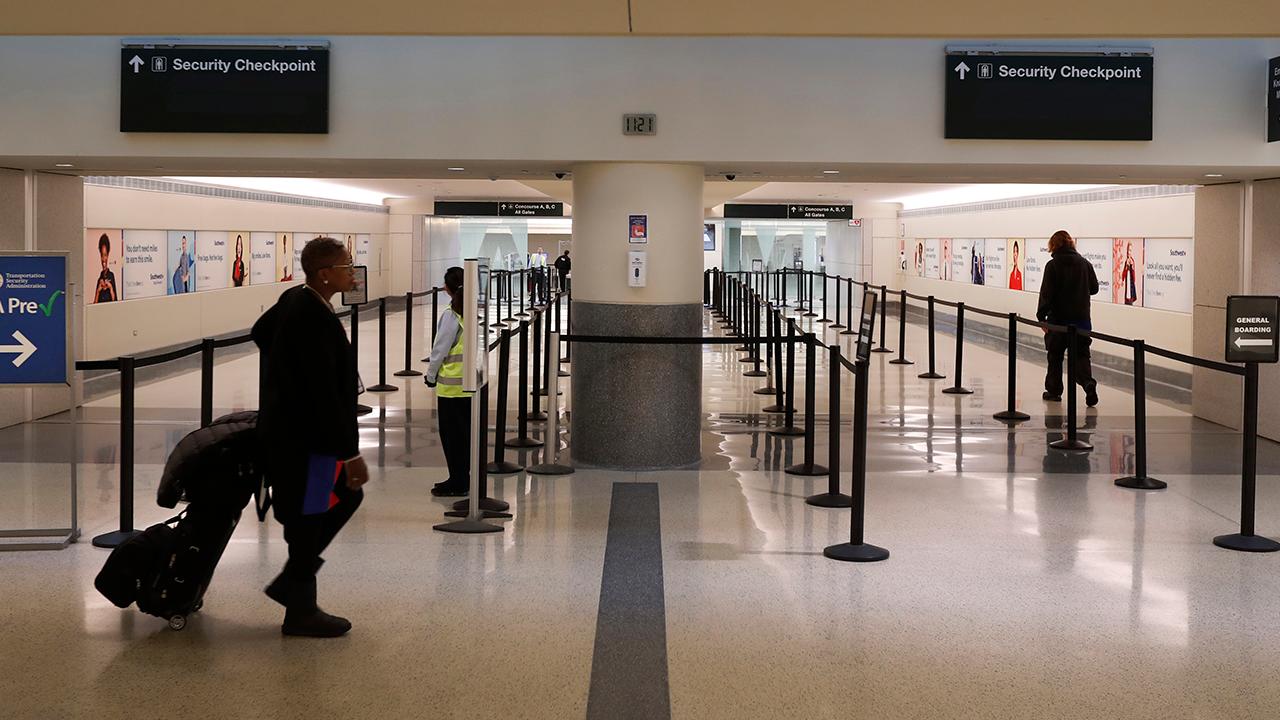Coronavirus made 59M Americans lose money over canceled plans
Vacations, weddings, graduation and several other major events have been canceled amid COVID-19 pandemic
Get all the latest news on coronavirus and more delivered daily to your inbox. Sign up here.
The global coronavirus pandemic has changed everyday life and 62 percent of Americans say they have canceled plans over the respiratory illness, according to a new survey from personal finance resource Bankrate.
These cancelations include celebrations such as weddings or graduation parties, hotel stays and similar lodging, flights, concerts, sporting events, live theater performances and several other big moments.
CORONAVIRUS SPENDING CUTS ON THE RISE AS THE PANDEMIC CONTINUES
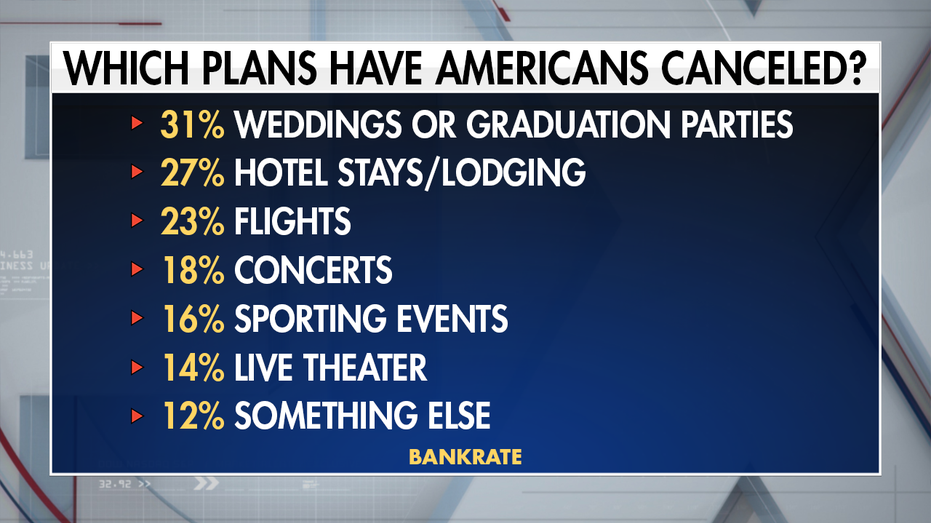
Of those who canceled their plans over the pandemic, 37 percent of the survey’s respondents said they lost money, which is equivalent to 59 million people according to Bankrate’s statistical calculation.
Only 30 percent of U.S. adults have or will receive a full refund from their canceled plans. Twenty-four percent got or expect to get most of their money back while 11 percent got or expect to get about half of their money. Another seven percent said they got or expect to get less than half their money back.
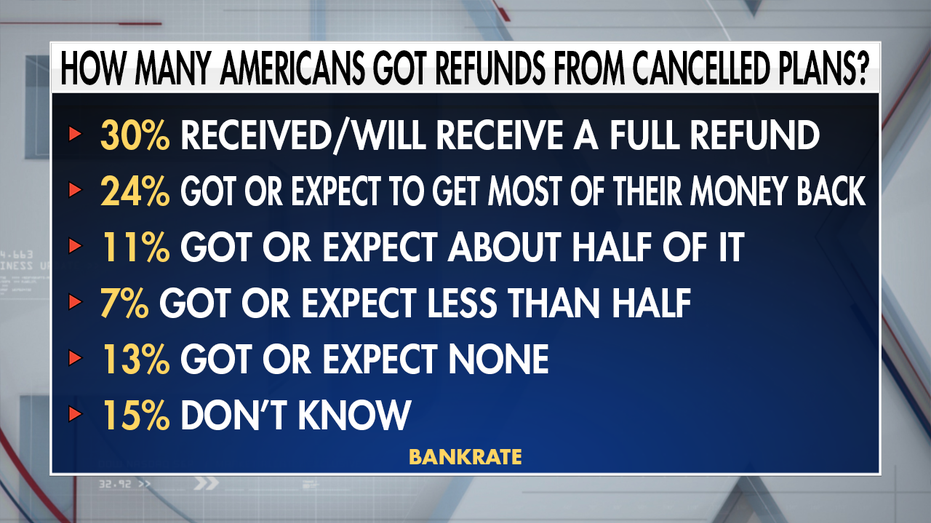
PRE-CORONAVIRUS CREDIT CARD DEBT CARRIED OVER FOR 110M AMERICANS
Thirteen percent did not receive a refund or are not expecting to get their money back. The remaining 15 percent currently don’t know if they will receive a refund.
“My best advice for a refund is to start by contacting the company that you purchased from – whether that was an airline, a travel agency, a ticket marketplace, etc.,” said Bankrate analyst Ted Rossman. “Start wherever you made the reservation or bought the tickets.”
“Most of these companies are being very generous with their refund policies. If you can’t reach a satisfactory resolution with them, then I think you should bring in your card company as a backup,” he added. “If you feel that the travel provider or ticket seller treated you unfairly, file a dispute with the card company and see if they can help you get your money back. With long phone waits reported, try to do this online if you can.”
To obtain a refund, 68 percent of Americans have gone the route Rossman has recommended and contacted a company directly for a refund. Of that group, 32 percent said they contacted a hotel or similar lodging service while 28 percent contacted an airline, 25 contacted an entertainment ticket seller, 18 percent contacted a credit card company and seven percent contacted another company that Bankrate’s survey didn’t identify.
CORONAVIRUS STIMULUS CHECKS WON'T BE ENOUGH, SAYS ONE-THIRD OF AMERICANS
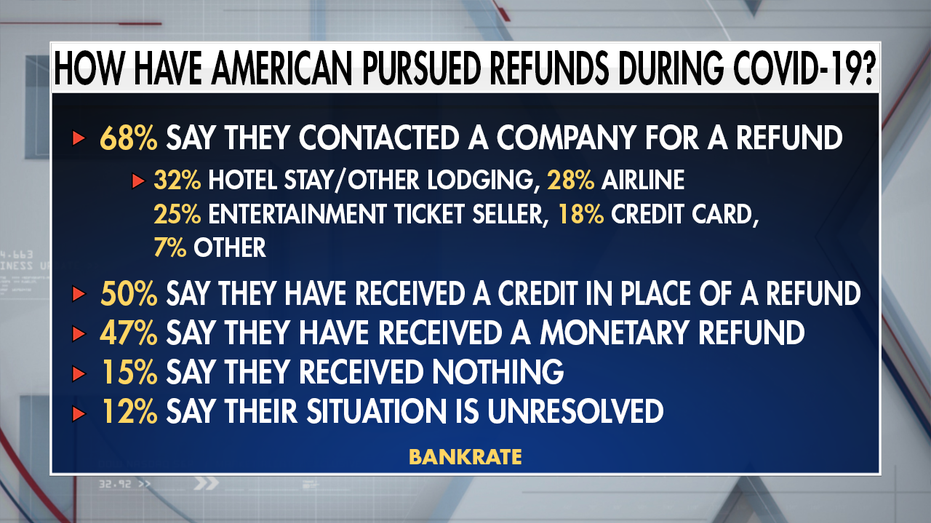
Half of the respondents who pursued refunds over coronavirus-related cancelations received a credit that can be applied to a future purchase instead of getting their money back such as a flight voucher, a hotel stay, sports ticket and so on. Only 47 percent of respondents who pursued a refund got their actual money back.
Fifteen percent, on the other hand, haven’t received anything at all for their canceled plans while 12 percent say their situation has yet to be resolved.
TIPS ON HOW TO BUILD FINANCIAL RESILIENCE
Cancelations were most prevalent among higher-income households in the West and Northeast, according to Bankrate.
More than three-quarters – 77 percent – of households that make $80,000 or more per year canceled or postponed plans versus the 64 percent of middle-income households that make between $40,000 and $80,000 per year and 53 percent of low-income households that make under $40,000 who did the same.
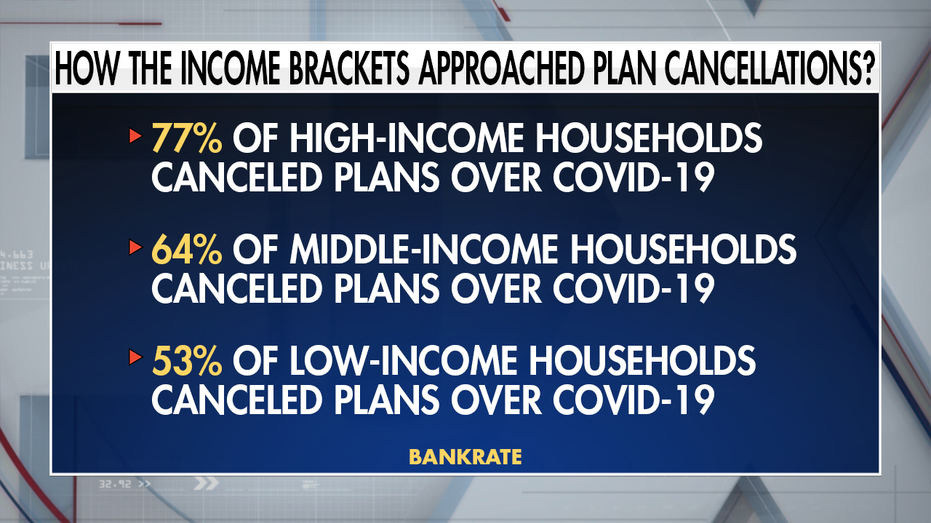
Sixty-eight percent of Westerners canceled or postponed their plans while 65 percent of Northeasters have done the same. Both these numbers are higher than the 59 percent of Midwesterners and 58 percent of Southerners who reported canceled or postponed plans.
GET FOX BUSINESS ON THE GO BY CLICKING HERE
Additionally, Bankrate found that Millennials between the ages of 24 and 39 were more likely to have canceled existing plans over the coronavirus outbreak versus Gen Xers between the ages of 40 and 55 and Baby Boomers between the ages of 56 and 74.
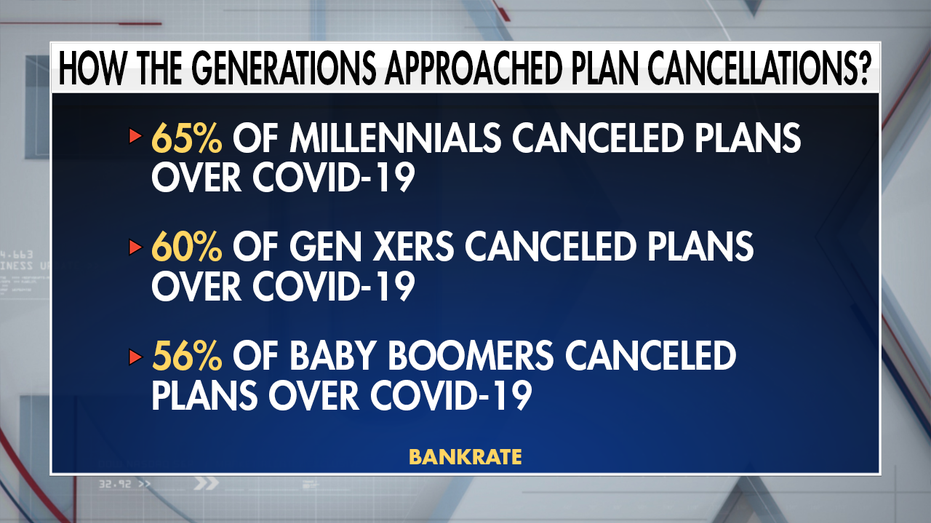
More than one-half of Americans – or 51 percent – reported they have no plans for the foreseeable future due to the uncertainty the coronavirus has caused.
Of those who still have plans on their calendar at some point this year, 76 percent are considering cancellation.
CLICK HERE TO READ MORE ON FOX BUSINESS
This includes the 34 percent who are thinking about canceling a celebration, the 32 percent who are thinking about canceling a hotel stay or similar lodging, the 30 percent who are thinking about canceling a flight, the 22 percent who are thinking about canceling a scheduled concert, the 18 percent who are thinking about canceling a scheduled sporting event, the 17 percent who are thinking about canceling a scheduled live theater performance and the eight percent who are thinking about canceling something else.




















